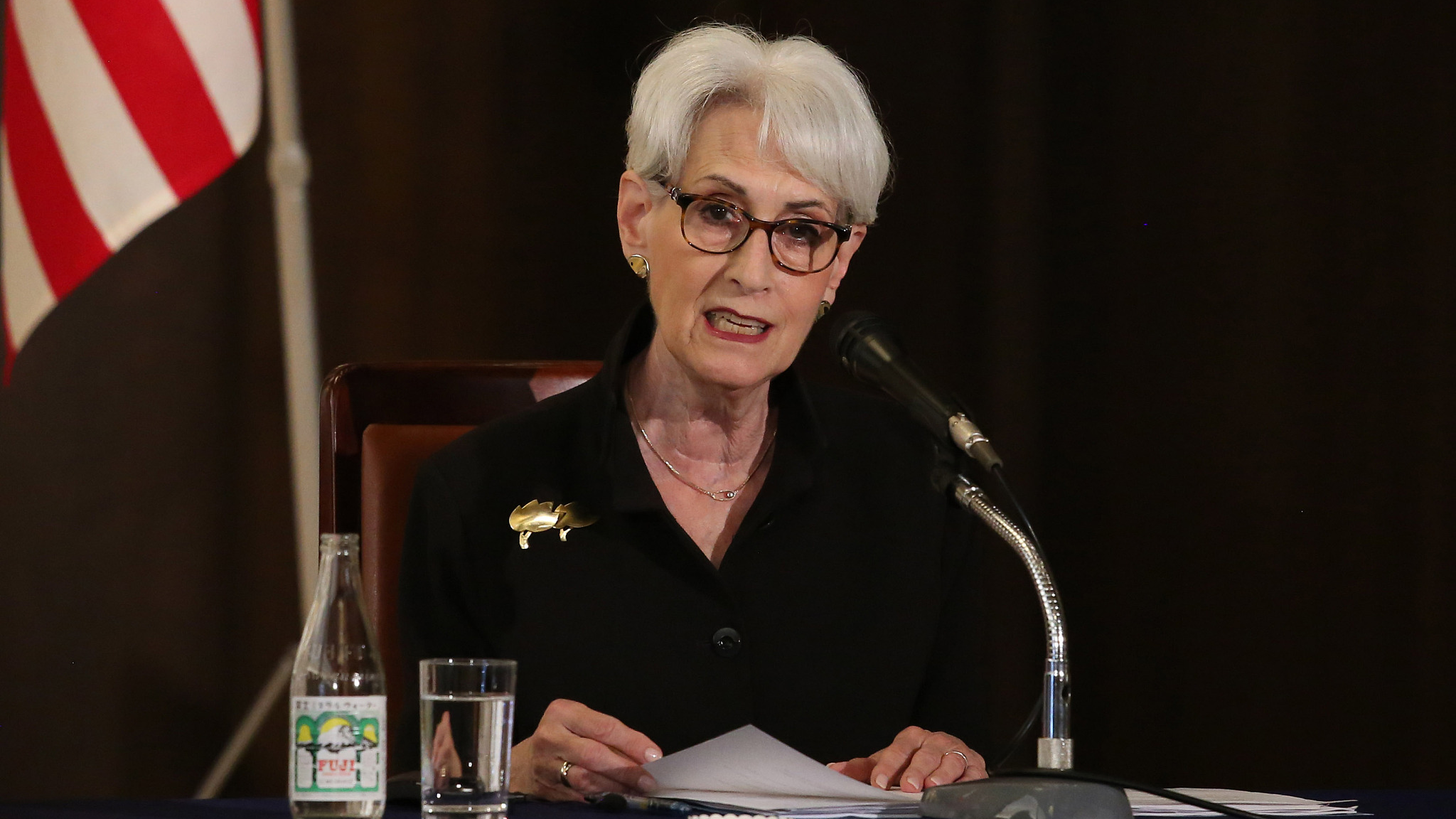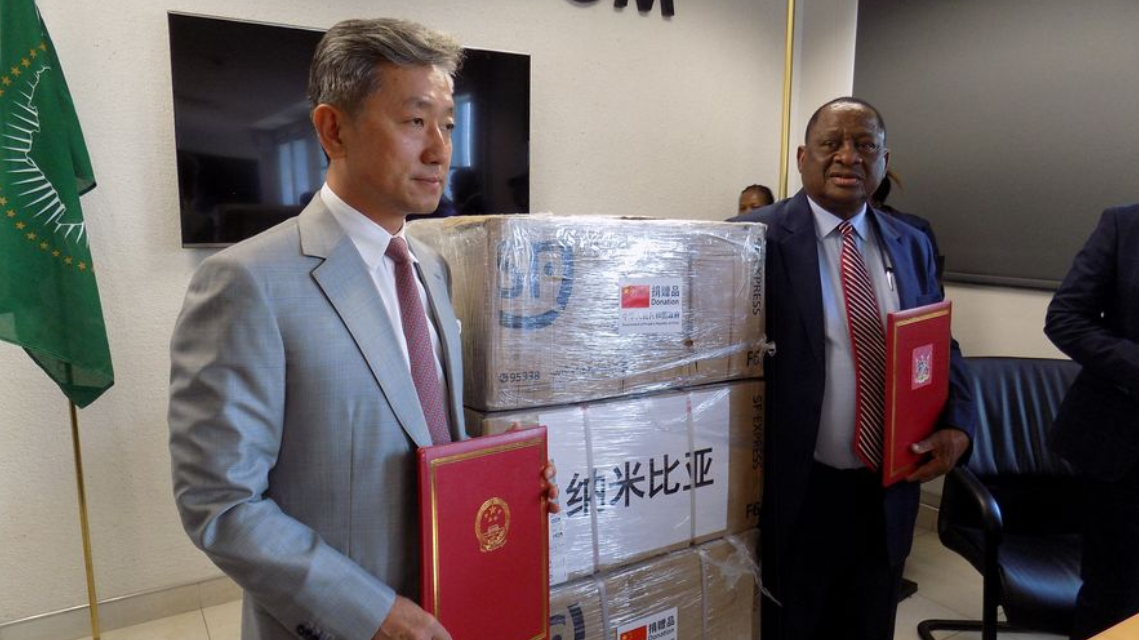
U.S. Deputy Secretary of State Wendy Sherman. /CFP
U.S. Deputy Secretary of State Wendy Sherman. /CFP
Editor's note: Bradley Blankenship is a Prague-based American journalist, political analyst and freelance reporter. The article reflects the author's opinions and not necessarily the views of CGTN.
After what was characterized as a frank discussion with Chinese State Councilor and Foreign Minister Wang Yi and Vice Foreign Minister Xie Feng, U.S. Deputy Secretary of State Wendy Sherman told the Associated Press that China needs to be a responsible power. According to her, Beijing should stand above the differences between the two sides and work together with Washington on issues like climate change and the COVID-19 pandemic.
"There are some things that rise above specific differences that are the global responsibility of great powers," Sherman said in a phone interview.
Sherman's words toward China in this particular section of her interview may as well have been pointed squarely at the United States since this has literally been Beijing's position since the administration of President Joe Biden came into office.
Beijing has been under no illusion that relations between the U.S. and China would reset overnight since the political knot tied by the former administration of President Donald Trump is too tight – and it was done this way on purpose. Still, Beijing has been clear in every conceivable way that it has wanted to move forward together on these issues, specifically the ones that Sherman mentioned.
That's why when U.S. President Joe Biden and Chinese President Xi Jinping held their first phone conversation on the Eve of Lunar New Year, climate was mentioned as at least one area of cooperation for the two sides.
The two sides even have officials designated for climate negotiations that have extensive experience working with one another, U.S. climate envoy John Kerry and his Chinese counterpart Xie Zhenhua, whom Kerry once called a "leader" and a "capable advocate" for his country.
For his part, Xie led the Chinese delegation in global climate negotiations from 2007 to 2018 and was selected again as China's special climate envoy. He was pivotal to the 2014 joint U.S.-China climate announcement that was seen as a first step in forging the Paris climate agreement.

Chinese Ambassador to Namibia Zhang Yiming (L) and Namibias Health Minister Kalumbi Shangula with donation in Windhoek, Namibia, March 18, 2020. /Xinhua
Chinese Ambassador to Namibia Zhang Yiming (L) and Namibias Health Minister Kalumbi Shangula with donation in Windhoek, Namibia, March 18, 2020. /Xinhua
In regards to the ongoing COVID-19 pandemic, few countries have cooperated the same as China. China has been at the forefront of the global fight against the virus in every country – providing medical supplies, vaccines, and know-how to help nations around the globe fight the pandemic.
Even from the very beginning of the virus' emergence, Chinese experts shared an unprecedented amount of data – including the genetic sequence of the virus – with the world. As The Lancet's Richard Horton said in an interview, the world actually owes China a debt of gratitude for the sheer volume of crucial information it shared with the world that would have been unthinkable just years ago.
Conversely, the U.S. has been extraordinarily irresponsible on both of the issues.
Though President Joe Biden has set relatively ambitious climate targets for the U.S., the environmental damage caused by his predecessor, who, along with a large sector of the population, denies the existence of climate change and rolled environmental regulations back generations, is indescribable. Biden's modest progress could be rendered pointless in just a few years if the climate change denialist Republican Party scores another win in 2024.
During the ongoing pandemic, the U.S. has served as the global nexus pandemic-related disinformation and helped foment global distrust against public safety regulations, vaccines, and organized human life in general. This is on top of the fact that the U.S. has, by far, the largest official case and death of any country on the planet. Not satisfied with this, the U.S. is now trying to politicize the studies of the COVID-19 origins to cover up these inconvenient truths.
Despite the fact that the U.S. has just about no credibility whatsoever on either of these crucial issues yet wants China to be "responsible", still the U.S. somehow maintains a smug attitude best embodied by Sherman's mentioning during the aforementioned AP interview of China's human rights record.
"We do expect ... them (China) to understand that human rights are not just an internal matter, they are a global commitment which they have signed up for" under the UN Universal Declaration on Human Rights, Sherman noted.
It is painfully ironic that at a time when the U.S. is waging constant wars of aggression abroad, maintains one of the most criminally unequal societies in human history, continues to treat its minorities like third-class citizens, and is prosecuting journalists that document its offense against humanity, it can somehow utter such words in all seriousness.
(If you want to contribute and have specific expertise, please contact us at opinions@cgtn.com.)

